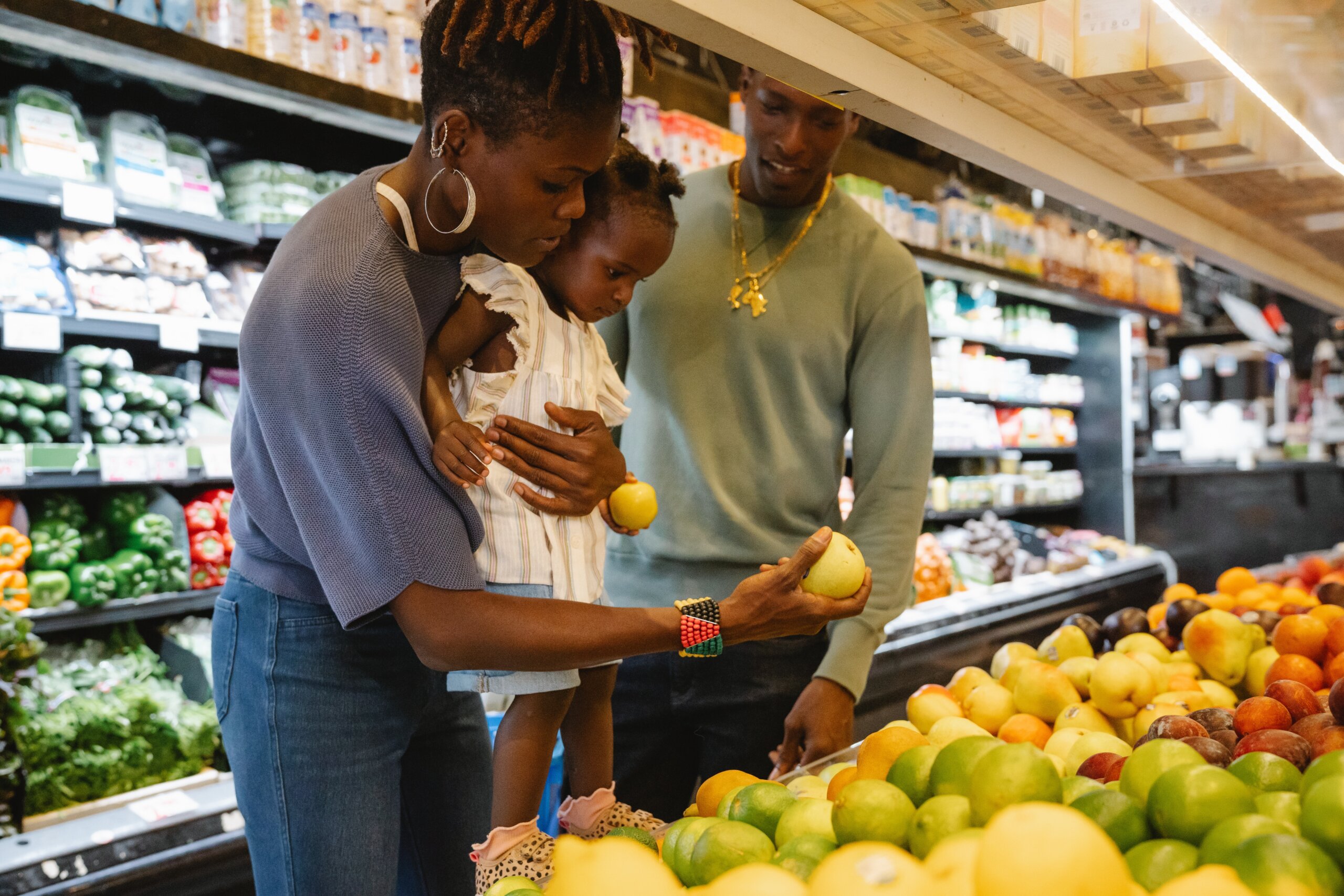Advancing Equitable Access to Food is Medicine
Advancing Equitable Access to Food is Medicine Interventions for Latinos
As the public and private sector build on President Biden’s vision to end hunger and reduce diet-related diseases by 2030, ensuring equitable access to affordable and nutritious food for all communities is a key priority. Food insecurity has been associated with negative health outcomes in the United States and a higher probability of developing a chronic disease.
Nearly one in six (16%) Latino households are food insecure, compared to about just one in fourteen (7%) white, non-Hispanic households and one in ten (10%) households overall. Among Latino children, the rate is even higher, with nearly one in five (22%) Latino children living in a food-insecure household, compared to one in eleven (9%) white non-Hispanic children. Furthermore, diet-related conditions like obesity, heart disease, and diabetes are some of the Latino community’s most serious—and preventable— chronic health conditions. The Centers for Disease Control and Prevention data show that Latinos (17%) are more than twice as likely to suffer from type 2 diabetes compared to non-Hispanic whites (8%). Such a condition devastates the individuals’ health and their families’ socioeconomic well-being, placing an immense burden on the health care system.  Picture by Greta Hoffman
Picture by Greta Hoffman
Food is medicine interventions are a spectrum of innovative programs and services that includes medically tailored meals, medically tailored groceries, and produce prescriptions, that link nutrition and health care to prevent, delay, or reverse a diet-related illness. These interventions can enhance health outcomes, narrow health equity gaps, and reduce healthcare costs, making it a crucial step towards a healthier America. However, they are currently only reaching a fraction of those who could benefit.
During the White House Conference on Hunger, Nutrition and Health, the Biden Administration and multiple stakeholders pledged to end hunger by increasing healthy eating and physical activity, resulting in over $8 billion in commitments. UnidosUS has been actively advocating for policies that promote health equity through programs such as Comprando Rico y Sano (Buying Healthy and Flavorful Foods), which builds the capacity of community-based organizations (CBOs) to increase food security among Latinos by equipping their promotores de salud (community health workers) with training and resources to provide culturally responsive nutrition education that promotes healthy shopping and eating habits, and information and enrollment assistance into the Supplemental Nutrition Assistance Program (SNAP), and Special Supplemental Nutrition Program for Women, Infants, and Children (WIC). Between 2020 and 2022, Comprando Rico y Sano (CRS) reached 4.6 million Latinos with nutrition and SNAP enrollment messages via news and social media, nearly four million pounds of food were distributed or delivered to homes, 26,629 Latinos enrolled in SNAP, 95,846 Latinos received nutrition education via in-person and virtual sessions, and 157 promotores de salud received training to implement the program. UnidosUS supported the White House Hunger Conference’s goals by submitting recommendations to shape the Biden-Harris Administration’s National Strategy on Hunger, Nutrition, and Health and committed to expanding the reach of CRS program.
Food is medicine services and programs are critical interventions for communities of color, including Latinos.  Picture by Carlo Martin Alcordo
Picture by Carlo Martin Alcordo
The National Institutes of Health has dedicated a $140 million grant to designate research institutions to gather data on the program’s effectiveness. At the same time, the Rockefeller Foundation, the American Heart Association, and Kroger have announced a $250 million plan to build national food is medicine research initiatives. Kaiser Permanente, a health insurance provider, is also leading the way by offering produce prescriptions for patients recently hospitalized with diet-related diseases.
Expanding food is medicine interventions to low-income communities of color can make a significant impact in reducing health disparities and improving health outcomes. A study assessing the effectiveness of medically tailored meal delivery for people with diabetes and experiencing food insecurity found that participants, almost half of whom were Latino or Black, reported lower food insecurity during the meal delivery services (42%) compared to those without the services (62%). In another study published by Health Affairs found that “around 100 patients (22.05% who were Latino or Black) enrolled in both Medicare and Medicaid who received medically tailored meals saw 70% fewer emergency department visits and 52% fewer hospital admissions than the 1,002 patients who did not receive the meals.”
Barriers prevent low-income communities of color from accessing and participating in food is medicine interventions.
Despite food is medicine considerable benefits and increasing support from the public and private sector, people, particularly low-income communities of color and immigrants, experience barriers to participation in these programs. One of the main barriers is that not all insurers include food is medicine among their covered benefits. This creates a strain as Latinos already experience disproportionately low rates of health insurance coverage (19% of Hispanic vs 9% of white people uninsured in 2021) and often encounter barriers to accessing high-quality health care. Latinos and immigrants also encounter unique obstacles to participating in nutrition assistance programs, including language access barriers, a lack of culturally relevant outreach and enrollment processes, and limited access to stores participating in nutrition programs.
Community-based organizations and promotores de salud are conduits to increasing awareness and participation in food is medicine interventions.  Picture by Anna Shvets
Picture by Anna Shvets
CBOs and promotores de salud are notable leaders and partners to be engaged in efforts to expand outreach and enrollment in food is medicine programs. They are trusted members of the community who provide community members a wide array of services, including assisting individuals and families with navigating the health care system, and working to enroll them in multiple benefit programs. CRS is an example of a culturally relevant program that can leverage the expertise of their dedicated CBOs and promotores de salud to educate and actively engage the Latino community in these innovative programs, enhancing health outcomes.
Food is medicine interventions have the potential to transform our health care system. As we approach the 2023 Farm Bill, policymakers should prioritize increasing the reach of evidence-based food is medicine interventions to communities in need and allocate appropriate funding. Furthermore, health insurance providers should support and finance these initiatives to ensure a smoother integration into individuals’ health care plans. For instance, with the establishment of the Gus Schumacher Nutrition Incentive Program (GusNIP), the 2014 Farm Bill first funded Produce Prescription (PRx) programs. To increase the reach and utilization of PRx and other food is medicine interventions, these services should be embedded as covered benefits for members of all government-sponsored health plans diagnosed with a diet-related disease or at risk of being diagnosed with a diet-related disease. It is our collective responsibility to ensure that everyone has access to healthy and affordable food they need to lead healthy, productive lives







































